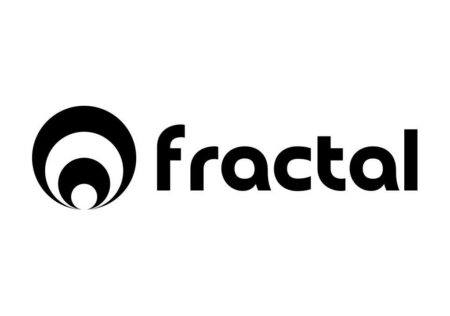On Friday (16 November 2018), the U.S. Securities and Exchange Commission (SEC) announced that two blockchain startups that had raised funds in 2017 via initial coin offerings (ICOs) had agreed to refund investors, register their tokens as securities, file regular reports with the SEC, and pay civil penalties for registration violations.
According to the SEC’s orders against Paragon Coin, Inc. and CarrierEQ, Inc (doing business as “Airfox”), both companies conducted ICOs in 2017 despite the fact that Commission had warned companies in the DAO Investigation Report that ICO tokens could be viewed as securities under the Securities Act of 1933 (“Securities Act”) and the Securities Exchange Act of 1934 (“Exchange Act”).
That report had concluded that:
“Whether or not a particular transaction involves the offer and sale of a security—
regardless of the terminology used—will depend on the facts and circumstances, including the economic realities of the transaction. Those who offer and sell securities in the United States
must comply with the federal securities laws, including the requirement to register with the
Commission or to qualify for an exemption from the registration requirements of the federal
securities laws.”
The order against Paragon says that this online entity was “purportedly established to implement blockchain technology in the cannabis industry,” and that from August 2017 through October 2017, it “offered and sold digital tokens (‘PRG’ or ‘PRG tokens’) to be issued on a blockchain, or a distributed ledger (‘the offering’)”. Furthermore, in connection with this offering, “Paragon described the way in which PRG tokens would increase in value as a result of Paragon’s efforts and stated that PRG tokens would be traded on secondary markets.” Paragon was able to raise “approximately $12 million worth of digital assets during the offering.” It did not “register the offering pursuant to the federal securities laws, nor did it attempt to qualify for an exemption to the registration requirements.”
As for the order against Airfox, a “Massachusetts business that sold mobile technology that allowed customers of certain United States prepaid mobile telecommunications operators to earn free or discounted airtime or data by interacting with advertisements on their smartphones,” apparently, between August and October 2017, Airfox “offered and then sold digital tokens (‘AirTokens’), which were issued on a blockchain or distributed ledger.” Via this ICO, it managed to raise “approximately $15 million in capital for the purpose of creating and capitalizing a new, international business and ecosystem.” The order further alleges that in connection with the offering, “AirFox stated that AirTokens would increase in value as a result of AirFox’s efforts, and that AirFox would undertake efforts to provide investors with liquidity by making AirTokens tradeable on secondary markets.”
The Commission says that neither company “registered their ICOs pursuant to the federal securities laws, nor did they qualify for an exemption to the registration requirements.”
Stephanie Avakian, Co-Director of the SEC’s Enforcement Division, said:
“We have made it clear that companies that issue securities through ICOs are required to comply with existing statutes and rules governing the registration of securities. These cases tell those who are considering taking similar actions that we continue to be on the lookout for violations of the federal securities laws with respect to digital assets.”
Steven Peikin, Co-Director of the SEC’s Enforcement Division, stated:
“By providing investors who purchased securities in these ICOs with the opportunity to be reimbursed and having the issuers register their tokens with the SEC, these orders provide a model for companies that have issued tokens in ICOs and seek to comply with the federal securities laws.”
The orders “impose $250,000 penalties against each company and include undertakings to compensate harmed investors who purchased tokens in the illegal offerings.” Also, both companies will need to register their tokens as securities, and “file periodic reports with the Commission for at least one year.” Both Paragon and Airfox “consented to the orders without admitting or denying the findings.”
What is significant about today’s announcement is that these are “the Commission’s first cases imposing civil penalties solely for ICO securities offering registration violations.” And I think it is quite safe to assume that they won’t be the last.
Over on Twitter, Nic Carter, Co-Founder of cryptoasset analytics firm Coin Metrics, called these “landmark cases”, and said that these type of enforcement actions would “happen hundreds and hundreds of times in the next 2-3 years until all the ICOs are gone.”
The SEC is working their way up the ICO totem pole, starting with the most obvious and easiest targets until they have the accumulated weight of caselaw to tackle the big ones. They don't want another SAC Capital Advisors debacle.
— nic carter (@nic__carter) November 16, 2018
This is a BFD because this is the first time the SEC has gone after after ICOs that occurred (Munchee never ICO'ed) that weren't obviously fraudulent in some way. It's a template for all the rest.
— nic carter (@nic__carter) November 16, 2018
Drew Hinkes, Co-Founder and Chief Legal Officer of Athena Blockchain (also: Adjunct Professor at NYU School of Law), made the following interesting observation:
The #paragon & #airfox orders require filing Form 10 -issuers become public reporting companies under 12(g). The form, https://t.co/UnTFVA7Gjb requires 3yrs of audited financials. Problem: issuers don't have 3 years of operations & FASB has not issued #ICO auditing standards. https://t.co/geNimtnDxn
— Drew Hinkes (@propelforward) November 16, 2018
Featured Image Credit: Photo via Pexels.com









